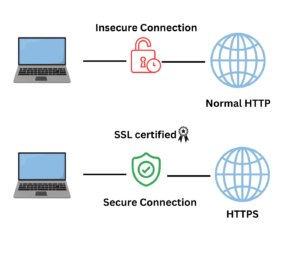Content marketing is a long-term approach to customer retention, conversion, and engagement.
And to measure your content marketing success, we use indicators called content performance metrics. These metrics are never set in stone, but they all must contribute to your marketing goals.
To put it simply, the metrics will constantly determine how close or far you are to your desired results. Thus, also serving as the barometer on whether your strategy is working or not. Likewise, the metrics can be used to identify areas where efforts can be improved or optimised.
If you need help with content marketing, Web9 is a digital marketing agency that can assist you with your ideas.

What are Content Marketing Metrics?
Content marketing metrics are used to measure the effectiveness of your content marketing strategy.
There are dozens of benchmarks that can be used to quantify your content marketing efforts and results, but the most common ones are audience engagement, bounce rate, keyword rankings, traffic acquisition or sources, content reach, and conversion rates.
These metrics also correlate directly with how you can achieve your marketing goals.

What are Your Content Marketing Goals?
Setting content marketing goals are specific objectives that the business needs to achieve through its content marketing strategy. Here are some of the most commonly tracked content marketing goals:
- Increase website traffic
- Increase brand awareness
- Improve search rankings
- Increase conversion rate/sales
- Build brand authority or credibility
Your content marketing dashboard doesn’t have to look exactly like this sample list. Instead, it has to reflect realistic goals that your brand is trying to achieve. Regardless, tracking your goals is important so that you can see your progress and find opportunities for growth.

Important Content Marketing Metrics to Track
Organic Search Traffic
Organic search traffic refers to website visitors who find your page through unpaid search engine results.
These traffic acquisition data points can be accessed through Google Analytics, although you can also use third-party analytics tools to go deeper into what the data set means to your marketing campaigns.
In most cases, high organic traffic is a definitive sign that you have a well-optimized website and content. This can also translate to an increase in visibility, engagement, and conversion rate.
Views
Views, or Page Views, measure how much traffic is being directed to your content.
In addition, views can showcase user behaviour as they are exploring your website, like the average session and the most visited pages.
By tracking this metric in Google Analytics, you can get insights into the effectiveness of your SEO strategies. Just note that repeated views from a singular user will generate multiple Page Views, which can warp your data.
The good news is that you can filter this with Unique Page Views to understand the interactions better.
Another critical data that’s seen in Page Views is bounce rate. An unusually high bounce rate indicates that there could be a problem on your landing page or the content isn’t meeting the user’s expectations.
Keyword Rankings
Keyword rankings indicate your content’s position in search engines for specific keywords.
Most of your content marketing efforts are geared toward ranking certain keywords, so tracking their performance is necessary for you to make meaningful adjustments to your content marketing strategy.
You can track keyword ranking and performance using reputable third-party tools like Ahrefs, SEMrush, or Moz. These platforms follow a paid subscription model.
Alternatively, you can customize Google Search Console to give you a better idea of how keywords are performing and what queries are being directed to your website.
Essentially, you’d want to improve your keyword positioning so that you can get more organic traffic, which is vital to the success of your content marketing campaign.
Backlinks
Backlinks are relevant links from other websites going back to your content.
Experts often consider them as a big influence on how your website is being rated by search engine results algorithms. They are also known to affect your site’s authority and rankings, that’s why backlinks from reputable sources are desired compared to another site that has low authority.
Impressions
Impressions are an indicator of how frequently your content is shown in search results or social media feeds. This number doesn’t account for whether the content was clicked on or not.
This metric provides loose information on the potential of your target audience, as well as helps in assessing content visibility and reach.

Click-Through Rate (CTR)
CTR is the percentage of impressions that result in clicks.
This data helps evaluate how effective your on-page SEO strategies are in making a user take action. CTR can be tracked by Google Analytics, while data for social media posts and ads are tracked by the social media’s own insights system.
Bounce Rate
Even if bounce rate isn’t the most positive metric to look at, you should never ignore it.
In fact, understanding why and when your customers are leaving the website is the only way to learn how you can keep them from leaving in the future.
To be more precise, a bounce rate only happens if your visitor jumps off the site after viewing only a single page. You can typically view this data in Page Views via Goole Analytics.
Social Media Engagement
Social media engagement refers to the likes, shares, comments, and other interactions on your social media posts. This is tracked more accurately by your respective social media platforms.
This data is important for understanding how your content is being received on other platforms, as well as how many of those who have been engaged actually follow through to see your website.
The data you’ll find in social media such as demographics and geography can also supplement those that you already have via Google Analytics. Thus, giving you a richer insight on your content marketing performance.

Use These Content Performance Metrics to Track and Excel in Your Content Marketing
To excel in your marketing efforts, it’s crucial to understand and wisely utilize your content marketing metrics. Setting clear goals and Key Performance Indicators (KPIs) is an excellent start, so that you can effectively align KPIs with your goals.
For example, if your goal is to improve brand awareness, it’s wise to immediately include impressions, social shares, content reach, and website traffic as your key metrics. Likewise, aim to invest in tools that are designed to measure the aforementioned metrics.
SEO tools all have their own strengths, and all you need to do is match those features with your strategy and budget. You can use these tools along with Google Analytics and Google Search Console to effectively measure content marketing ROI.
Meanwhile, if you lack the resources and time to create and run your content marketing strategy, we recommend seeking consultation with Web9, one of Brisbane’s most-trusted content marketing agency. Your first consultation is free!
Web9 specialises in SEO, website design, and content marketing.







